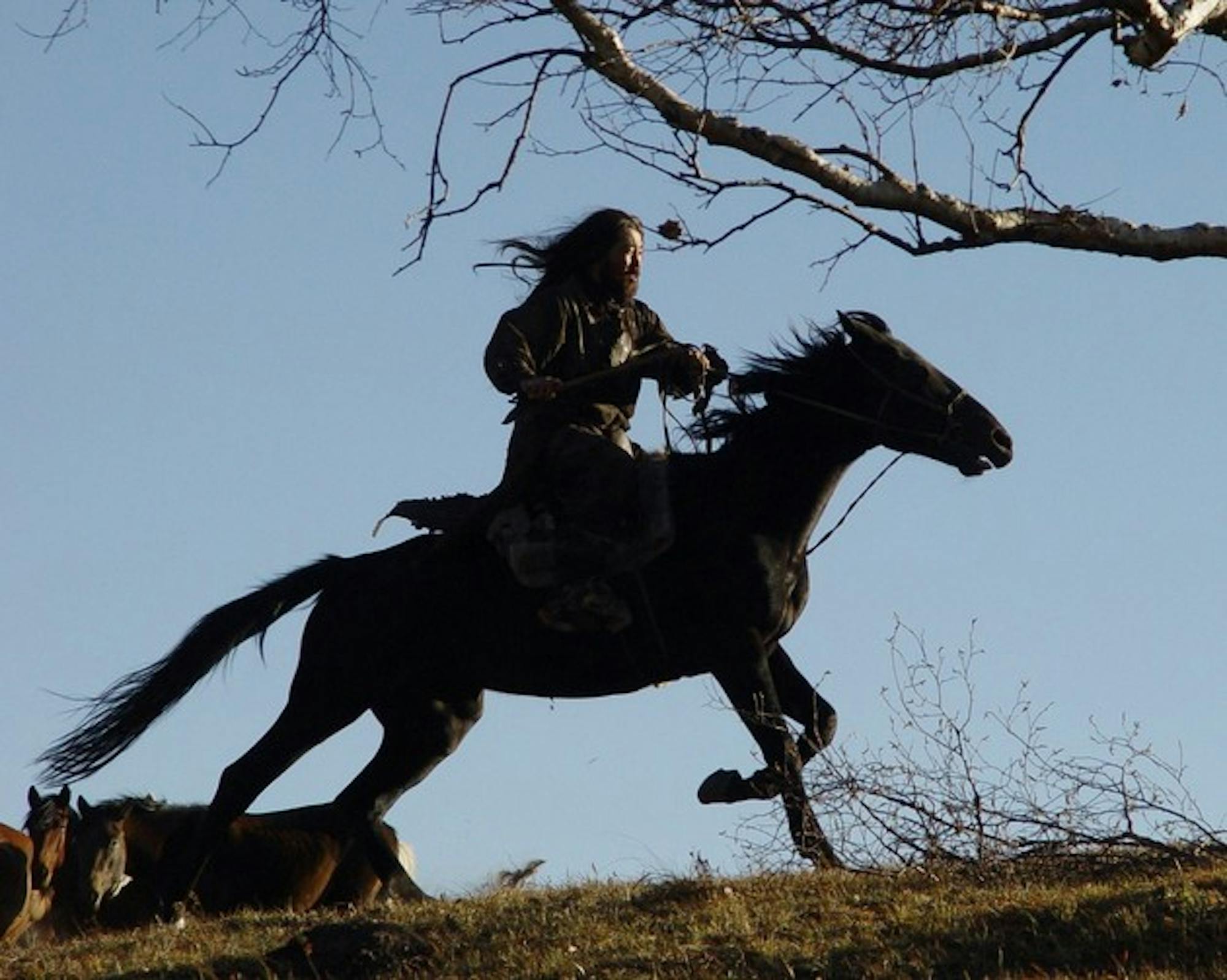When we first meet Genghis Khan, he's an uppity little nine-year-old named Temudjin, whose penetrating stare suggests he's got big plans for Central Asia. The son of a local warlord, Temudjin is offered his pick of all the prepubescent girls in the village to take as his bride ("Make sure she has good legs," his father cautions). He selects a bright-eyed cherub named Borte, and everything seems to be going swimmingly -- until a violent uprising drives Temudjin away from his home and into the wilderness.
For years Temudjin wanders the countryside alone, challenging wolves to staring contests to pass the time. Eventually he sprouts into a grown man, whereupon he returns to his father's tribe to wreak vengeance on his usurpers. Along the way, he reunites with Borte, who takes up with him as if they'd been together all along. "Don't you want to touch me?" she playfully inquires. "My touch would break you in two," he cheerfully replies.
If this sort of verbal dexterity leaves something to be desired (the screenplay consists of a smattering of Central Asian tongues, none of which are well-served by the subtitles), the film's rich aesthetic sensibility is apt compensation. "Mongol" is directed by Sergei Bodrov, a talented artisan who has managed to craft one of the most visually dynamic action movies in recent memory. The film's copious battle sequences are shot and edited with concise immediacy, the dusty brown color scheme occasionally breaking into a sensuous interplay of steely blues and clotted reds. In an age when most Hollywood blockbusters endlessly reprocess the same grungy, unimaginative imagery, it's refreshing to encounter a director who understands the importance of visual poetry in action cinema.
Bodrov is clearly a scholar of classical genre conventions, framing his narrative as an existentialist Western of sorts. Take away the scimitars and furry hats, and "Mongol" starts to resemble the cowboy movie that Sergio Leone forgot to make. A few moments of fleeting tranquility notwithstanding, the film draws its intensity from the thunderous clashes between dueling male egos -- it's unsurprising, therefore, that the subject of Genghis Khan's reputed bisexuality is no sooner raised than dismissed. "You can't cook two ram's heads in one pot," his wife scolds an abashed Genghis when he wakes up in the bed of another man, her tone stern enough to cow any adulterous warlord into monogamy.
Scenes like this one may sound dopey in retrospect, but it's those little interpersonal moments that hold the film together. Amidst all its bluff and bluster, "Mongol" shows us a kinder, gentler Khan, whose violent disembowelments are coupled with a healthy dose of romantic angst. I'm not sure I believe, as the film suggests, that Genghis Khan was inspired to conquer Asia by a bad break-up, but it's a serviceable dramatic structure for a movie that might otherwise have degenerated into a history lesson.
In this regard, "Mongol" is well-served by the lead performance of Tadanobu Asano, a Japanese actor who nimbly navigates the script's complicated emotional landscape. Asano has enough screen presence to hold our attention during a battle charge, but he also knows how to relax during the film's more intimate moments, giving us a portrait of a legend both mortal and iconic.
The film starts to crumble a bit in the last act, with an overhasty battle scene and a limp, sequel-ready denouement that all but ends with the words "to be continued..."
But no matter.
In the end, what saves "Mongol" is its interest not so much in spectacle but in story. It's a taut, emotionally potent narrative, with more fire in its belly than most of the noisy junk crowding theaters this summer. If you see the film, stay for the music over the end credits -- it's the first time I've heard heavy metal rock wedded so seamlessly to classical legend. If "Mongol" finds its audience, it won't be the last time.




![HONEYJOON_[Ines Gowland]_4.PNG](https://snworksceo.imgix.net/drt/7af2efc8-1bd1-4001-b754-e2718ce663b8.sized-1000x1000.PNG?w=1500&ar=16%3A9&fit=crop&crop=faces&facepad=3&auto=format)